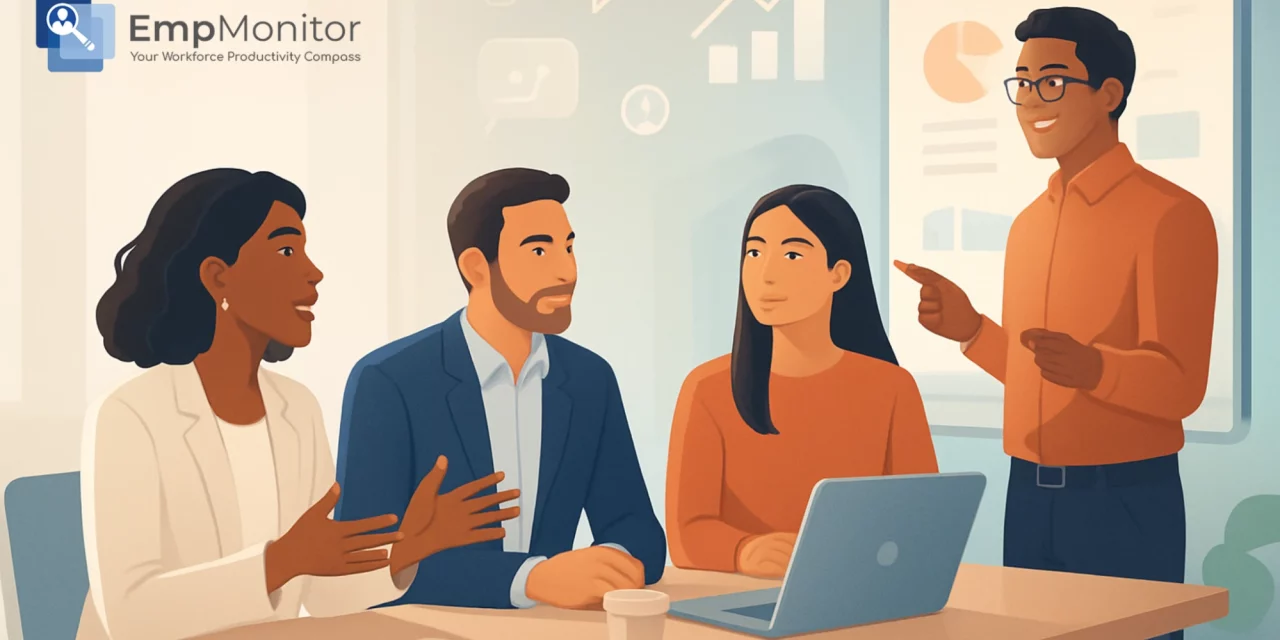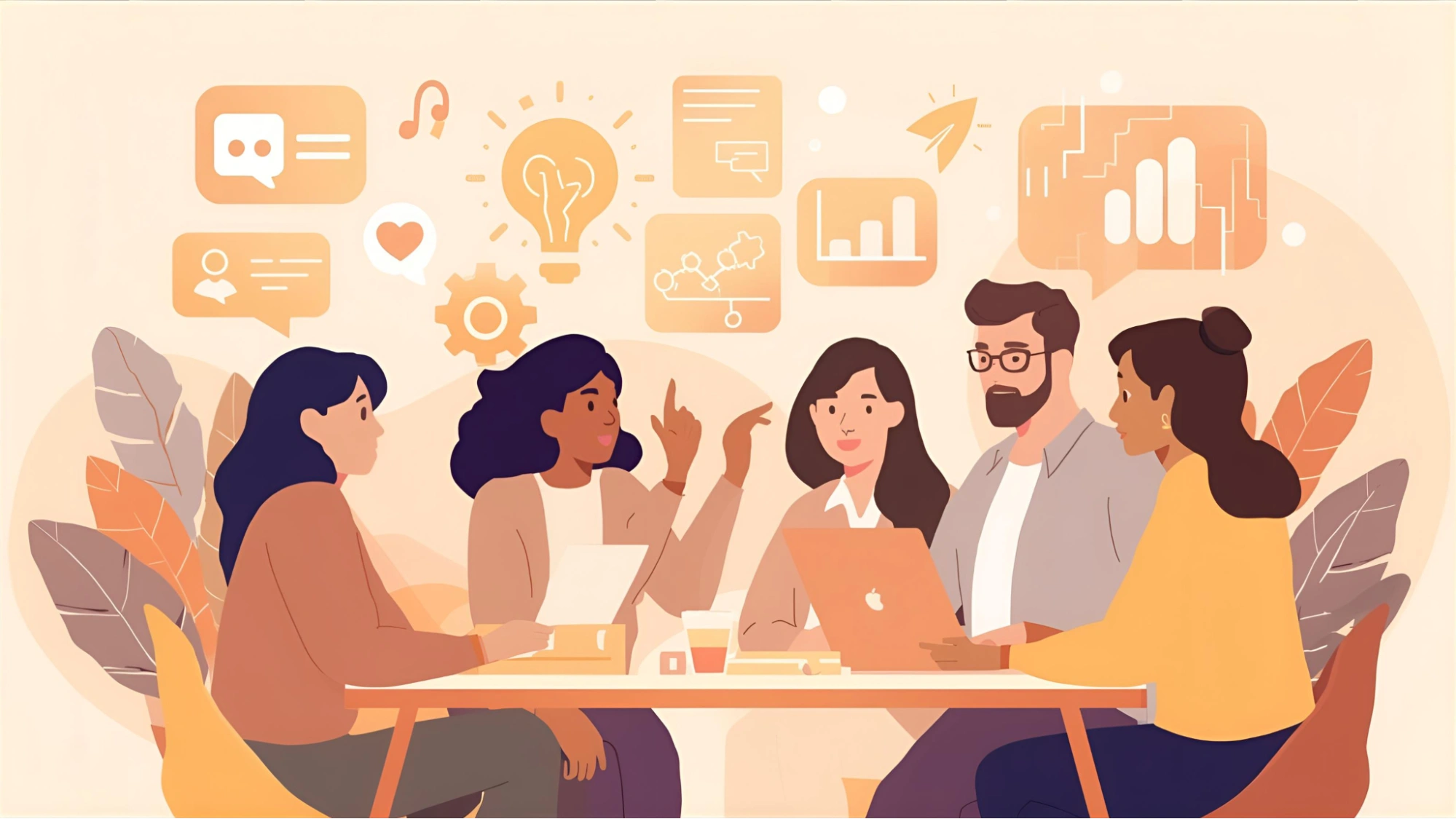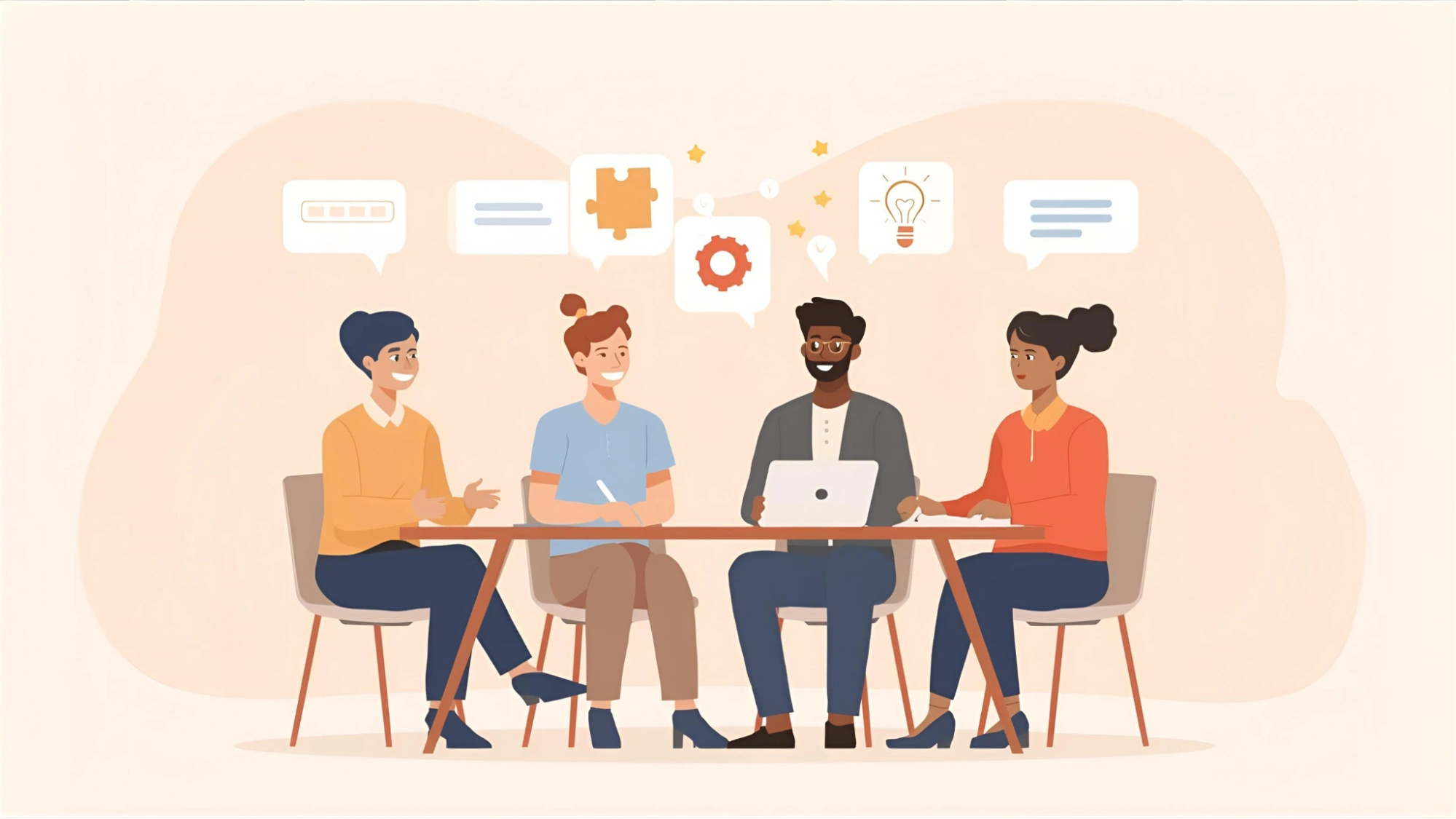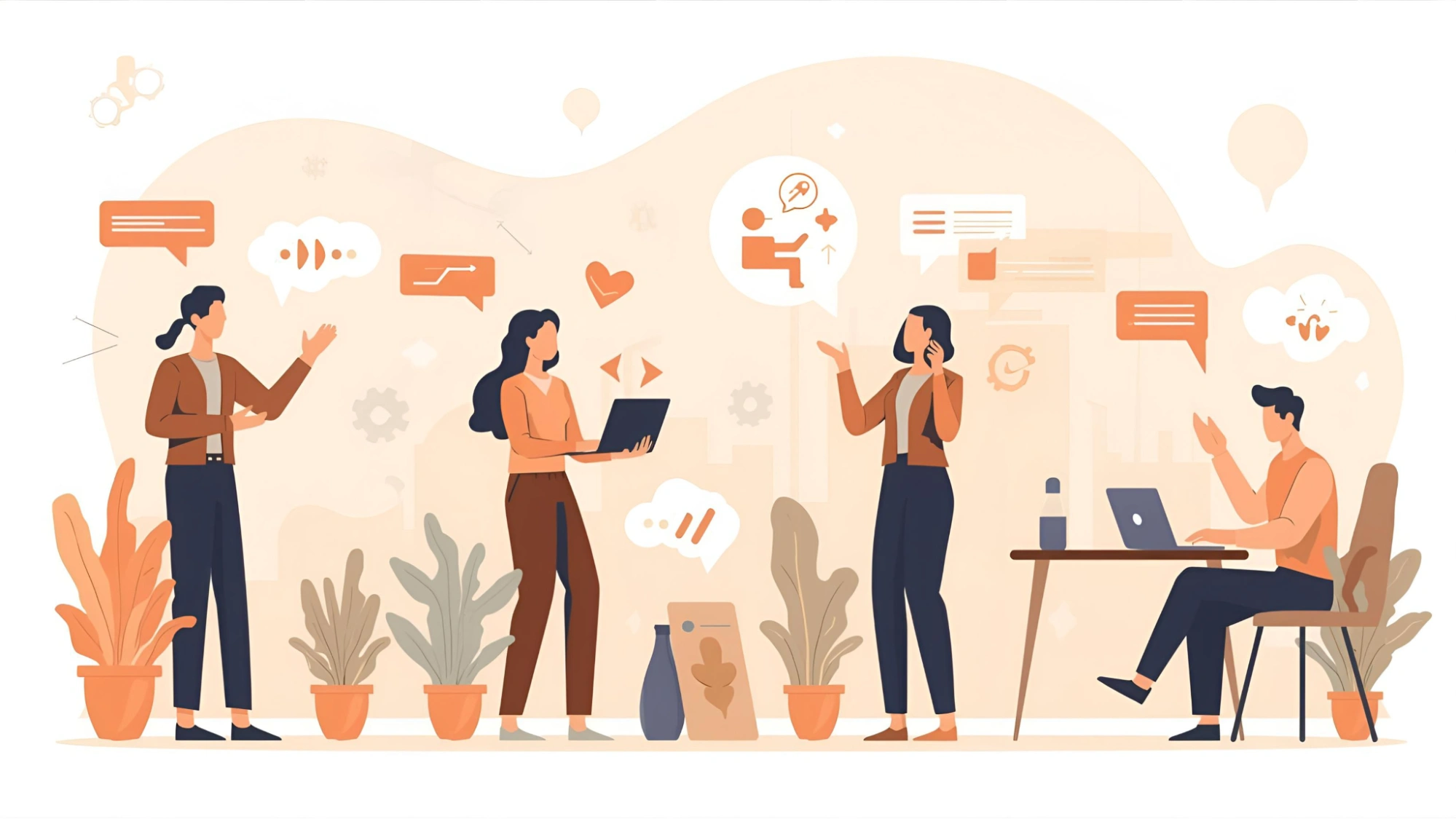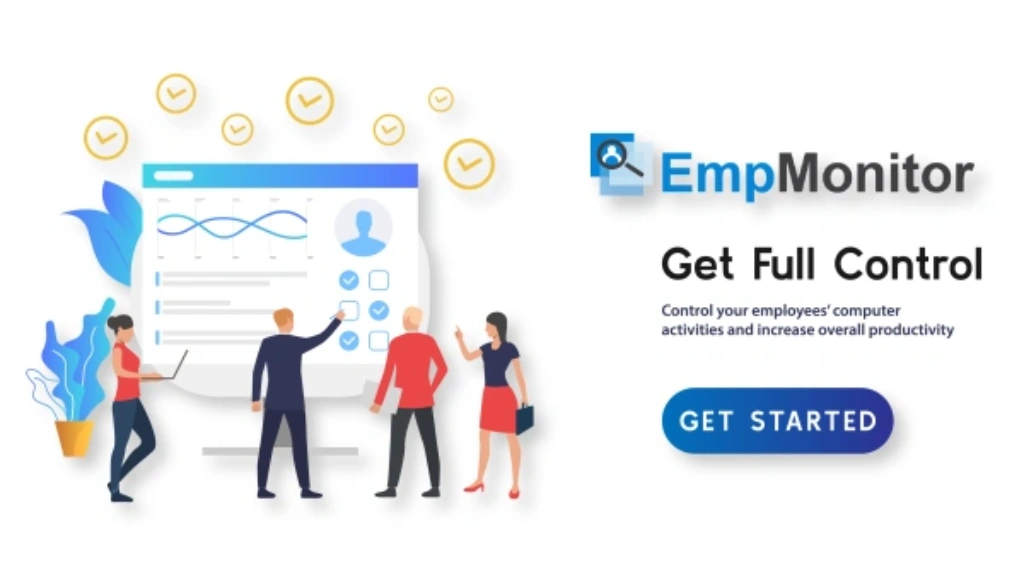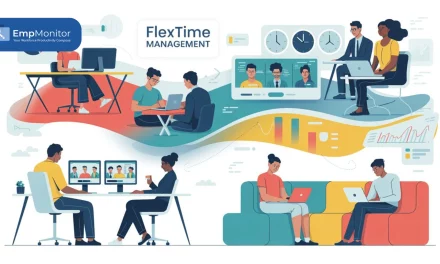In 2025, having strong soft skills will be as important as having technical skills. Companies want people to communicate with others, work with teams, solve real-time problems, and understand work pressure. These skills help you grow, regardless of your job. Soft skills facilitate working with others. This helps build trust, lead others, and handle challenges. And the best part? Anyone can improve their skills with the right habits and practice. In this guide, we explain what soft skills are, why they matter in the workplace, and how you can improve them in 2025. You will also learn how soft leadership and management skills can make you more confident and effective at your work.
Let us start by understanding what soft skills mean.
Listen to the blog audio!
What Are Soft Skills?
Soft skills are personal qualities that help individuals work well with others and handle everyday situations at work. They are not about what you know (like coding or accounting); they are about how you work with people and deal with challenges.
Soft skills are your people and mindset skills. They include:
- Communication: Sharing ideas clearly and listening to others.
- Teamwork: Working well with different people.
- Adaptability: Adjusting when things change.
- Problem-solving: Finding smart solutions under pressure.
- Emotional intelligence: Understanding and managing emotions, yours and others’.
Unlike technical or “hard” skills, soft skills cannot be learned from a textbook alone. They grow through experience, feedback, and practice in real situations, such as leading a meeting, resolving a conflict, or supporting a teammate.
When you build your soft skills, you do not just become better at your job; you become easier to work with, more confident, and ready to take on bigger roles.
Why Is It Important To Improve Your Soft Skills In The Workplace?
The way we work has changed significantly. Teams are now spread across cities, time zones, and countries. Technology in the workplace can help us connect, but it also means we need stronger soft skills in the workplace to communicate clearly, stay connected, and build trust, even from behind a screen.
In 2025, employers will be looking for people who can adapt quickly, solve problems, and work well with others. With AI taking over routine tasks, your human skills, such as creativity, empathy, and communication, are what truly make you stand out.
Improving soft skills can help:
- Grow your career: People with good communication and teamwork skills are often trusted with bigger roles.
- Work better in teams: You will understand people’s needs and handle conflicts more smoothly.
- Handle change with confidence: Adaptability helps you stay calm and focused when things change.
- Become a better leader: Strong soft leadership skills help you motivate others and build positive work cultures.
In short, soft skills are no longer “nice to have”; they are a must-have for success in the workplace.
Types Of Soft Skills To Focus.
There are many soft skills, but some are particularly important. As workplaces become more digital, these key skills help employees grow and feel more confident.
Communication Skills
Communication skills are one of the most valuable strengths that one can build, and expressing one’s thoughts clearly so that people connect with what one is saying is important.
Whether writing an email or leading a meeting, strong communication can build trust, clear confusion, and make working with others easier.
How to improve:
- Practice active listening and focus on what others are saying before replying.
- Please keep your messages short, clear, and polite.
- Ask for feedback on how you speak and write.
Emotional Intelligence (EQ)
EQ is your ability to understand and manage emotions, both yours and those of others. It helps you remain calm in challenging situations and respond with empathy.
How to improve:
- Notice your reactions when you are stressed and take a moment before responding.
- Try to view things from another person’s perspective.
- They should practice patience and gratitude daily.
Adaptability
Change is constant, especially with the advent of AI and new technology in the workplace.
Being adaptable means staying open to new ideas and adjusting quickly when things do not go as planned.
How to improve:
- Accept new challenges or projects outside your comfort zone.
- Focus on learning instead of fearing mistakes.
- Stay updated on industry trends.
Teamwork & Collaboration
No one succeeds alone.
Working well with others, even when opinions differ, is a key soft skill in the workplace.
How to improve:
- Share credit when the team succeeds.
- Offer help without being asked to do so.
- Listen before you lead.
Problem-Solving & Critical Thinking
Every job faces its own challenges.
Employers value people who can think clearly, stay calm, and find solutions rather than getting stuck.
How to improve:
- Break large problems into smaller parts.
- Ask “why” before jumping to solutions.
- Discuss ideas with others to gain new perspectives.
Also Read!
How To Monitor Employee Internet Usage?
Employee Monitoring Software And Data Privacy: What You Need To Know?
How To Improve Your Soft Skills: Practical Strategies
Improving soft skills takes time and practice, but it is completely doable.
You do not need special classes or expensive courses; just a small daily step can make a big difference.
Here are some simple ways to start improving soft skills in the workplace.
Know Your Strengths & Weaknesses
Start by noticing which soft skills come naturally to you and which ones you struggle with. You may communicate well but find it difficult to remain calm under stress. Knowing this helps you to focus your energy on the right areas.
Tip: Ask for honest feedback from your manager, teammates, or friends.
2. Learn by Observing Others
Observe how people with strong team management or soft leadership skills handle situations. Notice how they speak, listen to, or solve problems. You can learn a lot by observation.
Tip: Find a mentor or colleague you admire and ask them how they developed their skills.
3. Practice Every Day
Soft skills grow through practice, just like any other skill.
Try this:
- Volunteering to lead meetings or projects.
- Offer to train or guide new teammates.
- Join group discussions and speak more often.
4. Use Technology and Feedback Tools
In 2025, there are many tools that help track and improve soft skills. AI-based learning apps, online courses, and video feedback tools can help you identify your habits and improve quickly.
Tip: Record yourself during presentations or meetings to review your tone and body language skills.
5. Apply Soft Skills in Real Situations
The best way to grow is to use soft skills every day. For example:
- Use communication skills to make your email clearer and friendlier.
- Adaptability is used when a project changes at the last minute.
- Use emotional intelligence to resolve disagreements at work.
6. Keep Learning and Reflecting
Improvement at work through better soft skills is a lifelong process. Take time to reflect on how you are doing and what is getting better. Even small wins, like handling a tough conversation calmly, count as real progress.
Soft Leadership Skills & Management Skills: For Leaders and Aspiring Leaders
Soft leadership and management skills involve guiding tasks, supporting the team, and tracking progress. These skills help inspire others, resolve conflicts, and create a workplace where everyone feels valued and motivated.
What Are Soft Leadership Skills?
Soft leadership skills are people-focused abilities that help leaders guide others with empathy and understanding of their needs. They include:
- Active listening: Paying full attention when someone speaks.
- Empathy: Seeing things from your team’s perspective.
- Clear communication: Sharing goals and feedback in a kind, simple way.
- Emotional control: Staying calm and positive under pressure.
Leaders who use these skills earn trust and respect rather than fear. They make their teams feel supported and motivated.
The Role Of Management Skills
Management skills involve planning, organizing, and ensuring that tasks are completed; however, the best managers blend these skills with strong soft skills.
For example:
- When providing feedback, they remain honest and kind.
- When solving problems, they include their team’s ideas.
- When handling stress, they set a calm tone instead of spreading the pressure.
How To Build These Skills
- Start small: Practice empathy during team check-ins.
- Ask for feedback: A good leader learns how others perceive their actions.
- Model good behavior: Show respect, keep promises, and communicate clearly.
- Keep learning: Read, watch talks, or take short courses on leadership and communication.
When strong soft skills are combined with smart management skills, the leader becomes trustworthy and desirable to work with.
Try EmpMonitor
Well, this is not a soft skill: It is a monitoring and productivity metric tool.
EmpMonitor can make your job a lot easier while you focus on improving your team’s management and soft leadership skills.
EmpMonitor helps you understand how your team works, identify where they need support, and create a transparent, performance-driven culture, all without micromanaging.
Here are some of its useful features.
- Employee Activity Tracking: Daily activity logs, app usage, and productivity trends.
- Real-time Monitoring: View live screens to ensure that projects remain on track.
- Automatic Timesheets: Tracks working hours and attendance without manual effort.
- Productivity Reports: Get clear, visual insights into individual and team performance.
- Data Security: Protect company data and manage access smartly.
- Remote Team Support: Perfect for hybrid or remote teams, helping managers stay connected and informed.
While EmpMonitor is not directly about building soft skills, it supports leaders by freeing up their time from routine checks so they can focus on what is truly important: communication, trust, and team growth.
Overcoming Common Challenges When Building Soft Skills
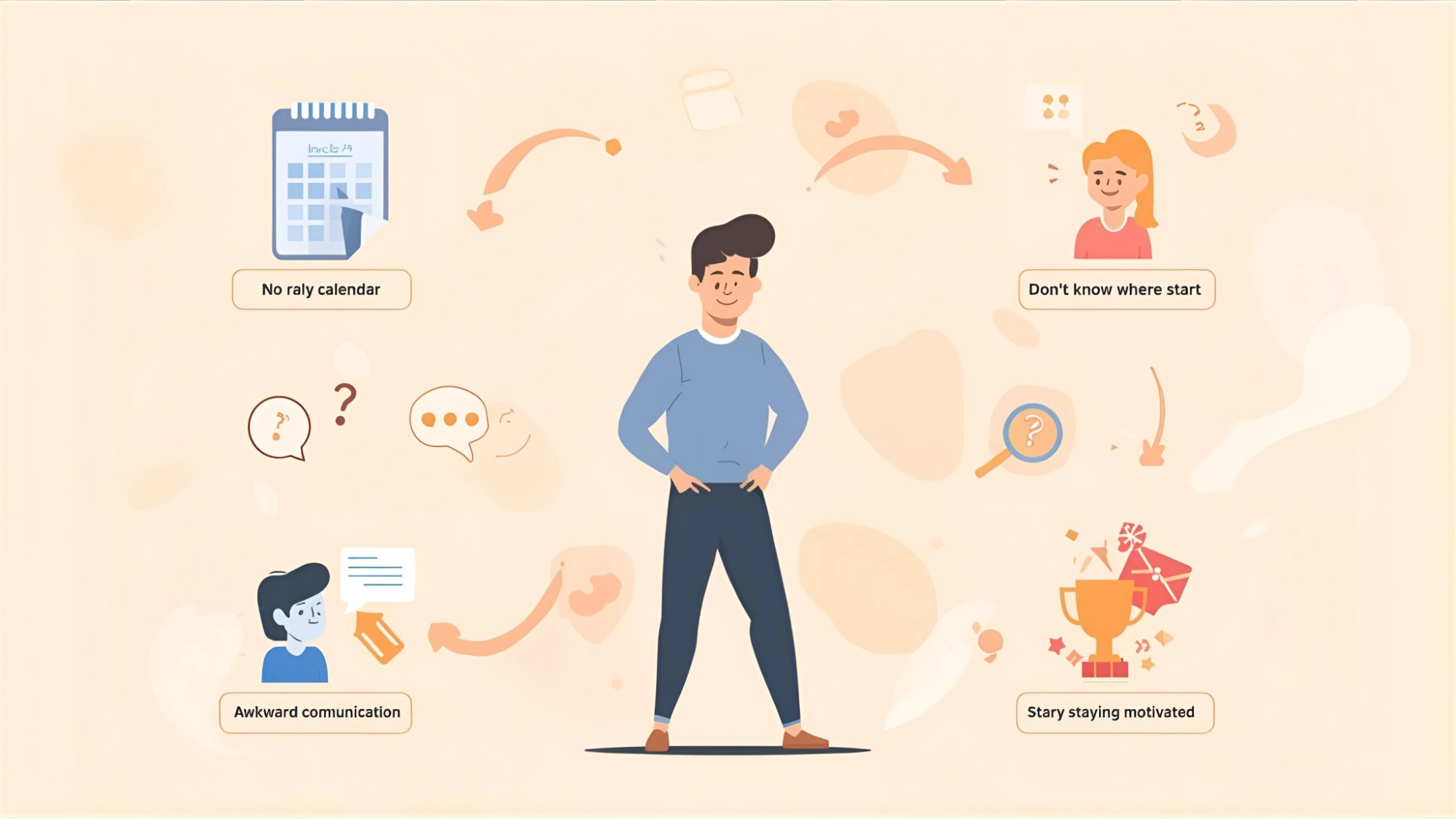
Improving soft skills sounds simple, but it can be challenging in real life. You might get busy, feel unsure of where to start, or not notice quick results. That is normal; every skill takes time and patience to grow. Here are some common roadblocks and how to overcome them:
1. “I Don’t Have Time.”
Many people skip soft-skill practice because their schedules are full. However, you do not need hours; you can build them in small ways every day.
Try this:
- Spend five minutes reflecting on what went well and what did not after meetings.
- Practice active listening during regular conversations with others.
- Replace one negative comment with a positive comment each day.
2. “I Don’t Know Where to Start.”
If you are unsure which skills to focus on, start with communication and emotional intelligence; they improve everything else.
Tip: Ask a trusted coworker, “What’s one area where I could work better with others?” Their answers are your starting points.
3. “It Feels Awkward or Forced”.
Initially, using new soft skills in the workplace may feel uncomfortable. That is okay; it just means you are learning.
Solution: Continue practicing in small moments. The more natural it becomes, the less awkward it feels.
4. “I Don’t Get Feedback.”
Sometimes, no one tells you how you are doing, which makes it difficult to know if you are improving.
Try this:
- Ask for feedback directly after meetings or projects are completed.
- Use simple questions like “Was that clear?” or “Anything I could do better next time?”
5. “I Lose Motivation.”
Soft-skill progress can be slow, and it is easy to stop when quick results are not seen.
Tip: Celebrate small wins, such as staying calm during a tough talk or finishing a task with better teamwork. Every small step is important.
Conclusion
Improving soft skills is not a one-time task; it is an ongoing habit that helps one grow both professionally and personally.
In 2025, these skills will be more important because you are communicating with your team, leading a project, or adapting to new challenges; your soft skills make the difference.
Start small: Pick one skill, such as communication or emotional intelligence, and work every day. Ask for feedback, stay open to learning, and do not be afraid to make mistakes.
If you are a manager or team leader, EmpMonitor can support you by tracking productivity and helping you focus on people and their performance.
Strong soft skills in the workplace build trust, boost teamwork, and create an environment where everyone succeeds together.
The sooner you start improving yours, the more confident and capable you will feel in every part of your career.
FAQs About Improving Soft Skills.
Can improving soft skills help with job interviews?
Yes. Employers often look for candidates who communicate clearly, show confidence, and can handle pressure well. Soft skills, such as active listening, empathy, and adaptability, help you stand out and leave a strong first impression.
Are soft skills useful for freelancers and remote workers?
Absolutely. For remote professionals, skills such as time management, self-discipline, and clear communication are essential. Soft skills help freelancers build long-term client relationships and manage projects independently.
Can online courses help improve soft skills?
They can — as long as you apply what you learn. Online courses are great for understanding concepts, but soft skills grow through real practice, feedback, and reflection in daily work.
What is the biggest mistake people make when developing soft skills?
Trying to improve too many skills at once. It is better to focus on one area, such as communication or emotional intelligence, and work on it consistently before moving to the next.

